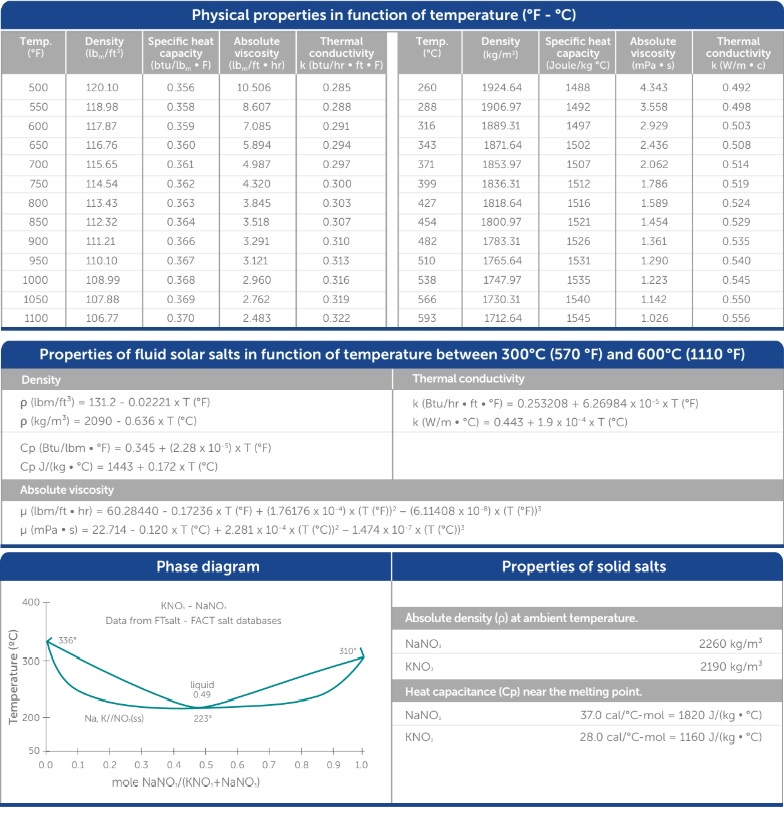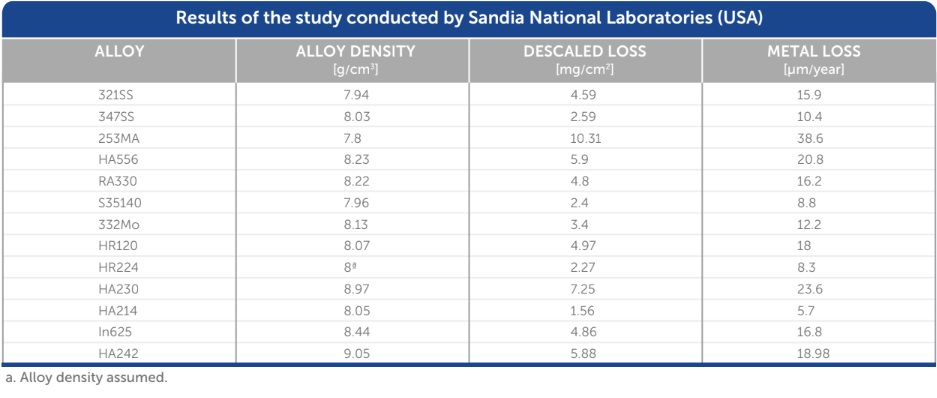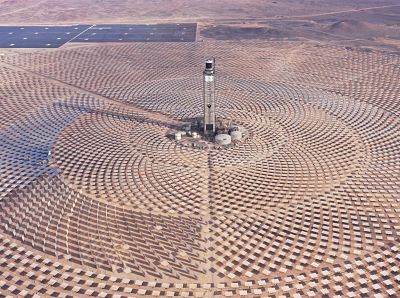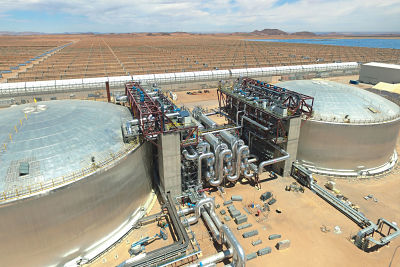
SQM is the world's largest producer of 100% natural nitrates
SQM delivers high quality products to its customers
Most renewable energy technologies such as wind and PV suffer from a discontinuous energy supply and an unpredictable output due to altering weather conditions and/or energy demands. Concentrated solar power (CSP) plants, equipped with a Molten Salts Storage System, store heat during sunny hours and stay operational also during evening hours and cloudy days, which significantly increases their electricity output. The generated electricity from thermal storage is completely dispatchable: its power can be connected to the electrical grid at any time.

Non-toxic

100% natural nitrate salts

Non-flamable

Highly refined, low content of impurities

High chemical stability

Virtually maintenance free

High specific heat

Produced with much lower CO 2 emissions and far less environmental impact compared to synthetically produced salts
SQM’s Molten thermo-solar salts can be used over a temperature range of 260 °C (500 °F) to approximately 621 °C (1150 °F). As temperature decreases, the salts start to crystallize at 238 °C (460 °F) and solidify at 221°C (430 °F). Heat of fusion (based on the average of heat of fusion of each component): hsl = 161 kJ/kg. Change in density upon melting: ΔV/Vsolid = 4.6% => Vliquid = 1.046 Vsolid.
Reference: A.V. Zavoico, SAND2001-2100 Solar Power Tower Design Basis Document – Courtesy of Sandia National Laboratories Albuquerque, New Mexico 87185 and Livermore, California 94550 – July 2001. For this specific application, Sodium Nitrate and Potassium Nitrate are mixed in 60%/40% by weight ratio. The mixture is stable in air and has a low vapour pressure.

SQM offers to the CSP industry high quality sodium nitrate and potassium nitrate grades to match the specific requirements of each CSP power plant developer.

(1) The product does not contain other relevant sources of halogen compounds (iodide, bromide, iodate, bromate or any other).
(2) Moisture measured at SQM production site. Some absorption of moisture may occur during transportation.
Insoluble particle size guaranteed: particle size 2 mm max.
Classification according to Regulation (EC) No 1272/2008 and the Globally Harmonized System of Classification and Labelling of Chemicals (GHS):
Potassium nitrate: Oxidising solid, category 3.
Sodium nitrate: Oxidising solid, category 3. Irritating to eyes, category 2.
The level of corrosion of SQM’s thermo-solar salts has been proven to be acceptable since the nineties. In more recent measurements, Sandia National Laboratories (USA) has concluded that at 600°C bulk molten salt temperature, the average corrosion rate ranged less than 16.5 microns per year for 13 different alloys after 3000 hours of testing with only one alloy exceeding 25 microns. Most industrial applications would label that as excellent corrosion performance.
ref. SAND 2013-2526, March 2013

NREL (National Renewable Energy Laboratory) conducted a study that clearly demonstrates that it was economically equivalent to remunerate 5 US dollar cents/kWh to a new PV plant and 10 US dollar cents/kWh to a CSP plant with storage.
Represents the avoided costs of conventional generation at their respective dispatching along with related ancillary service costs, such as spinning reserve. Savings on emission costs are also taken into account.
Reflects the ability to avoid the costs of building new conventional power generation in response to growing energy demands or plants retirements.
Thermal storage can be applied in other cases wherever thermal energy is used and not only in CSP plants. It can be implemented in industrial processes and even deployed for grid applications where the excess of electricity is converted to heat and stored in a solar salts thermal storage unit.
Thermal storage based on molten nitrate salts is stable for at least 30 years while the lifetime for batteries is shorter and rather uncertain.
An environmentally friendly solution from SQM that optimizes the efficiency of your industry.

Cerro Dominador Solar Plant, courtesy of Cerro Dominador

100MW Xina Solar Plant. Photo, courtesy of Abengoa S.A.